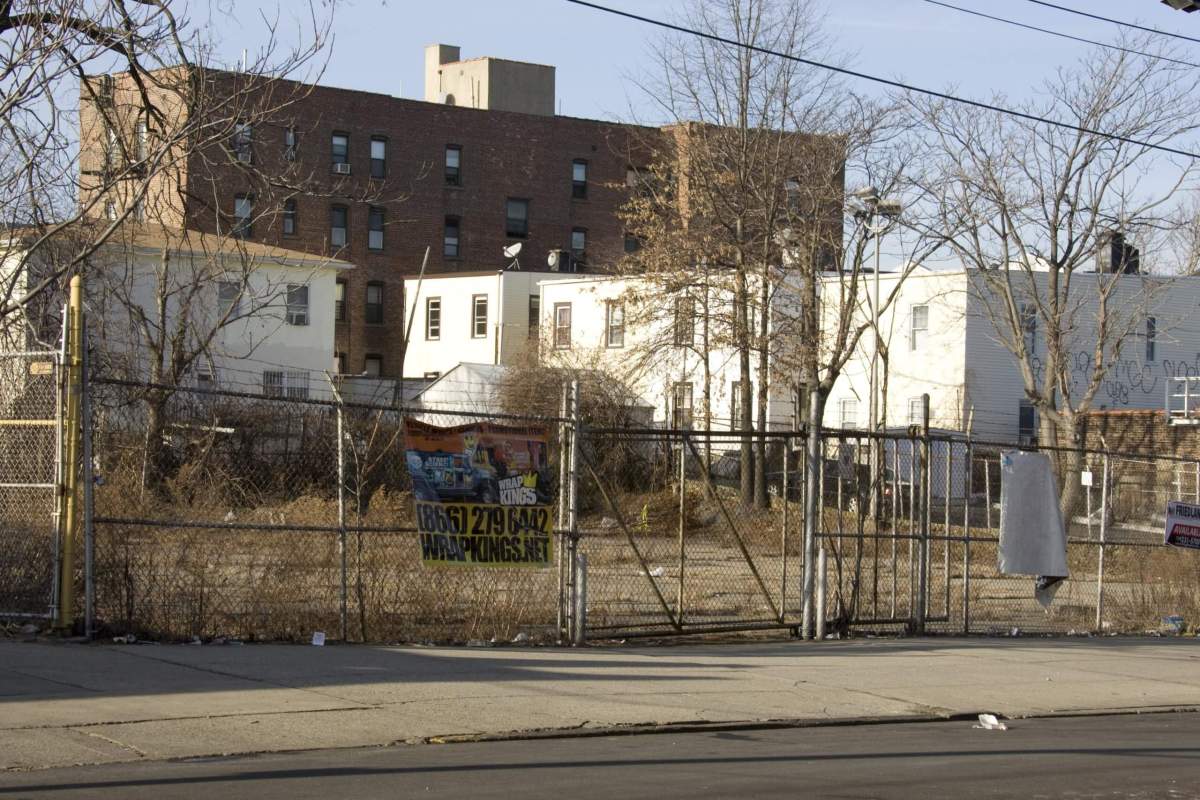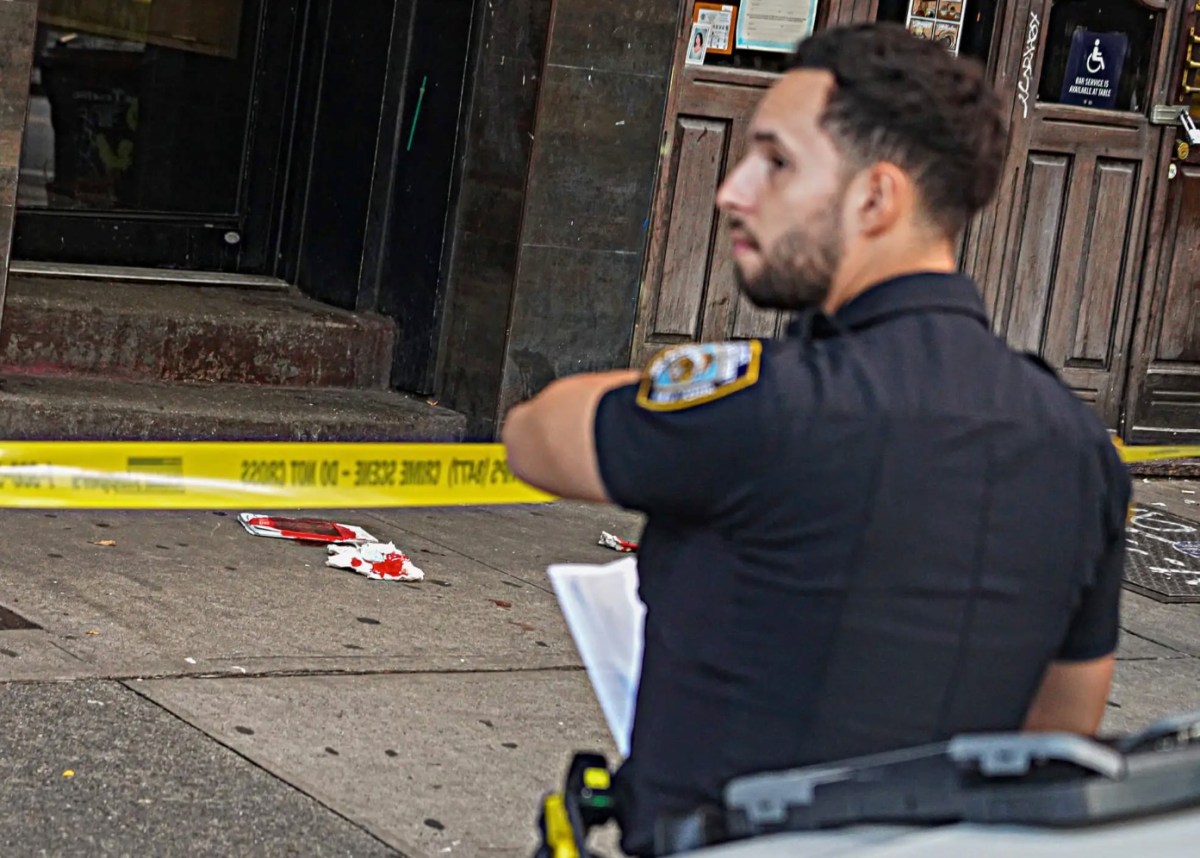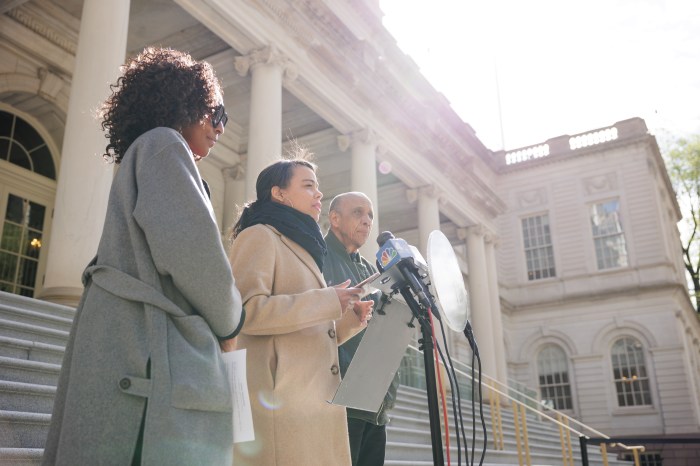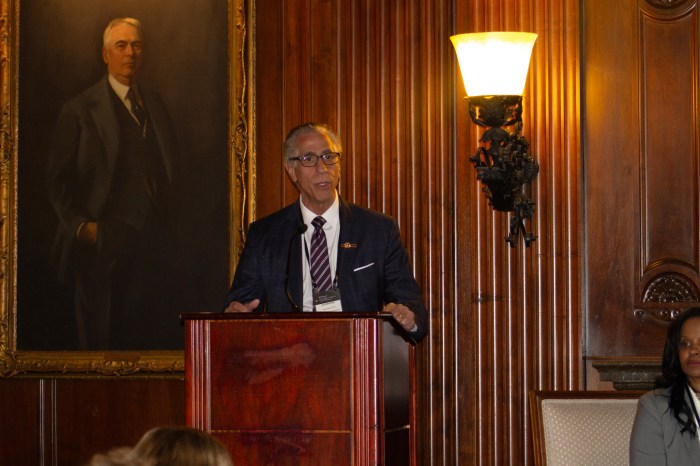A crowded question and answer session with Praxis Housing Initiatives in Wakefield on Thursday, January 7 resulted in more questions than answers. Praxis suggested that it establish an advisory board for its proposed 60-unit White Plains Road permanent supportive housing development but neighborhood leaders remain anxious.
Bard Avenue residents Nelson and Ilana Howell called the session “helpful” but thought that Praxis “tap danced” around several questions posed by neighbors. Praxis has a down payment on 4339 White Plains Road, a vacant lot between E. 236th and E. 237th streets smack dab in the middle of Wakefield’s beleaguered shopping corridor.
“Some questions weren’t answered,” Nelson Howell said.
Praxis would build as-of-right on White Plains Road, rezoned for medium-density residential developed some years ago.
On January 7, Praxis struggled to explain what distinguishes permanent supportive housing from homeless shelters and transitional housing. Tenants of permanent supportive housing, formerly homeless, sign leases, often one-year or two-year leases, and pay rent, Praxis CEO Svein Jorgenson said.
Cynthia Stuart of the Supportive Housing Network of New York offered background. Permanent supportive housing was developed in the early 1980s as a substitute for dilapidated “welfare hotels” and shelters. In theory, permanent supportive housing offers poor and/or troubled but responsible tenants the help they need to succeed. On average, tenants stay more than five years, Stuart said.
Case managers and job counselors operate out of permanent supportive housing developments. Such developments boast 24/7 security guards plus recreational rooms and gardens, often made available for neighborhood use. Although many permanent supportive housing developments, financed by the government, are expensive, they save money because they ease pressure on homeless shelters, emergency rooms, drug treatment programs and prisons, Stuart said.
When Wakefield residents and business owners heard “homeless,” they imagined a shelter populated by undesirables. But Praxis operations director Florencio Cuevas stressed that the formerly homeless tenants of the proposed development would have jobs and would be no different than other neighbors, although they would require case managers and/or counselors from time to time.
Many Wakefield residents who attended the January 7 session sounded incredulous.
“If these are regular people, why do they need supportive services?” Mary Lauro of the Wakefield Taxpayers and Civic League said.
Assemblyman Jeff Dinowitz and several residents asked Praxis whether tenants of the proposed development would belong to one or another “special needs” group(s). Would they be mentally ill? Or veterans, perhaps?
Praxis had no simple answer on January 7 but later confirmed that the development would house tenants similar to those it already houses. Praxis operates five transitional housing developments in Manhattan and Brooklyn for chronically homeless people with HIV/AIDS, mental health issues, chemical dependency and other special needs, Praxis real estate consultant Jolie Milstein said. Praxis residents are 78 percent male. All have HIV/AIDS. One in four possess criminal histories, 75 to 80 percent have drug or alcohol problems and 75 to 80 percent have mental health issues.
Praxis has never operated a permanent supportive housing development before but has successfully integrated transitional housing developments into “high-profile” neighborhoods such as the Upper Westside, Cuevas said.
“I like to think that our neighborhoods are high-profile,” Dinowitz said.
Praxis has applied to the city Department of Housing Preservation and Development for capital funds to build on White Plains Road. Although HPD has yet to vet Praxis, the city needs more permanent supportive housing, HPD Bronx planner Ted Weinstein said.
Praxis has engaged celebrated veteran architect Cindy Harden to design the development; a New York University report found that permanent supportive housing developments bolster neighborhood property values, Stuart added.
On January 7, Dinowitz fired off a round of questions. Praxis, Jorgenson, Cuevas and Milstein answered, boasts a budget of $10 million per year, pays 54 percent of its employees $30,000 or more and would attempt to hire and house Wakefield residents. Praxis employees don’t belong to a union. Jorgenson earns $150,000 per year.
Praxis would hire some 14 employees to run the development and expects that it would boost business on White Plains Road. But Lauro and some members of the Bronx Business Alliance worry that a homeless development would derail efforts to resuscitate the shopping corridor. Although Milstein explained that Praxis could devote the development’s ground floor to retail, Lauro urged the developer to build on White Plains Road north of E. 240th Street instead. A homeless development at 4339 White Plains Road would “ruin” the shopping corridor, Lauro shouted.
Resident Neva Shillingford argued that 60 units would change Wakefield more than 60 units would change a denser neighborhood in the south Bronx. She and Annie Calhoun suggested that the neighborhood needs senior housing, not homeless housing. But Community Board 12 land use committee chair Karl Stricker disagreed. Although Stricker is concerned about White Plains Road, homelessness is a problem in the neighborhood, he said.
Stricker was glad Praxis agreed to the session, but Howell was less than persuaded.
“I don’t totally understand [Praxis’] intentions,” she said. “That makes me uncomfortable.”
Reach reporter Daniel Beekman at 718 742-3383 or dbeekman@cnglocal.com





















